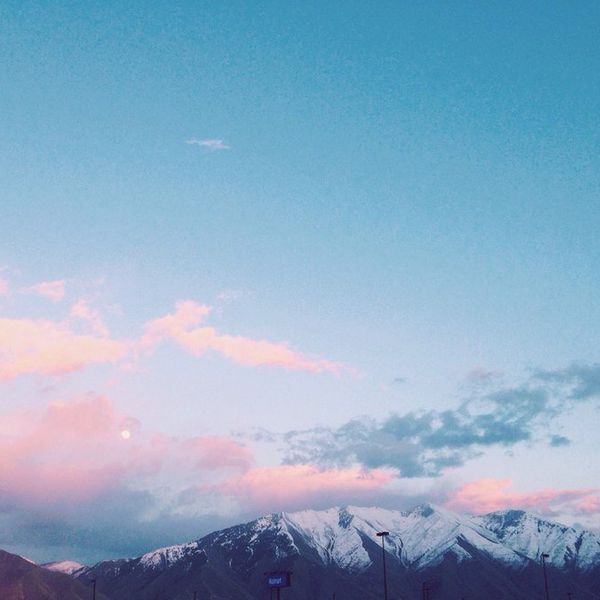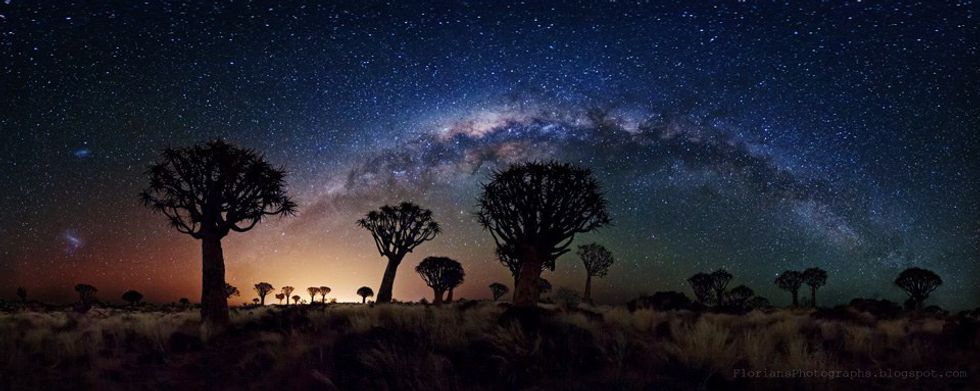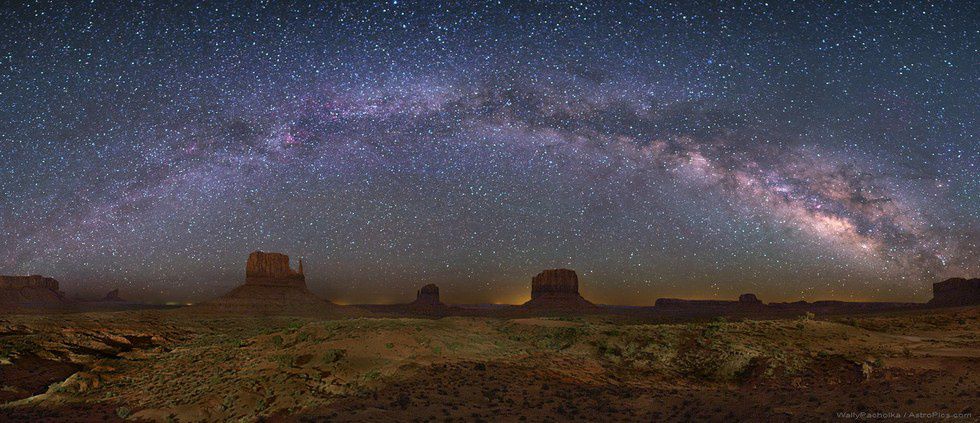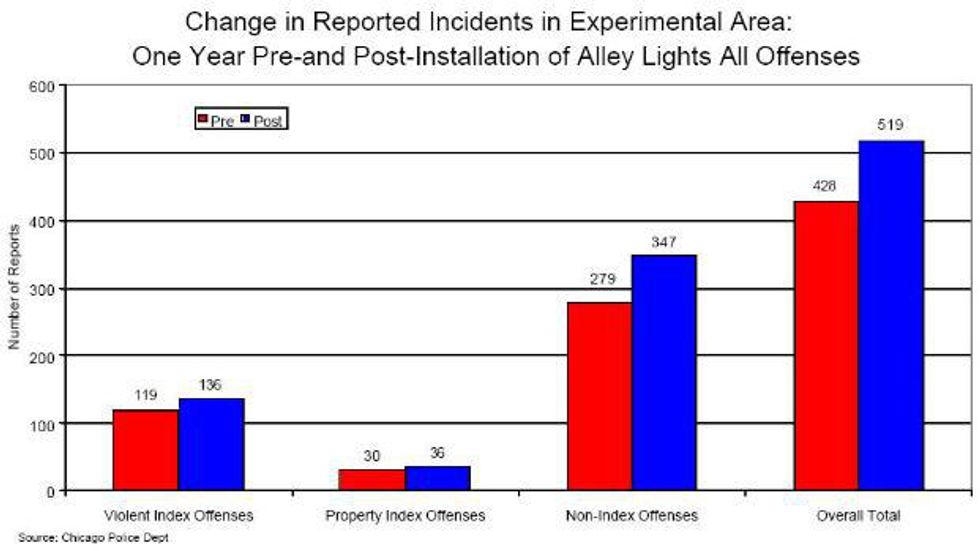If you step outside at night and look up at the sky, what do you see?
Do you see a scattering of stars that you could probably count on one hand? Maybe a hundred? Five hundred? Can you see only the brightest stars known to Earth, or have you ever seen the Milky Way gracefully arch above your head?
Before the discovery and mass utilization of electric lighting, every human alive with the ability to gaze upon the skies had seen what is now one of the rarest sights on Earth. The teeming sea of stars, the illuminated dust of our home galaxy and the slow trek of our neighboring planets floated in skies darker than many people alive today have ever encountered (considering around 50 percent of all people on Earth live in urban environments). This allowed for the meticulous sky-watching that allowed for calendar-keeping, religious ritual, and the gathering of knowledge and technology by many cultures, across continents, over many hundreds of years. The night sky was a guidebook, a calendar, a storyteller, a house of worship. With such pure, unaltered views of the universe, it's not hard to imagine why the night sky was such a marvel for our ancestors.
With a view like this every night, could you blame them? (Source: APOD/NASA)
Earlier this month, the Canyonlands National Park in Utah was awarded gold-tier International Dark Sky Park status, joining the ranks of 28 other parks (including the recently-designated Black Canyon of the Gunnison National Park in Colorado) and 41 other Dark Sky Places, ranging in darkness levels from Dark Sky Communities (which "adopt quality outdoor lighting ordinances and undertake efforts to educate residents about the importance of dark skies") to super-dark Dark Sky Sanctuaries (of which there is only one: AURA Observatory in Chile). These are some parts of the Earth where the fully glory of the night sky is not (or, at least, not as impeded as other places) by light pollution: Excessive, misdirected, or obstructive light that washes out the night sky. Light pollution is the result of poorly-designed street lamps, floodlights, lighted building faces, or even lights that do nothing but shine up into the sky (I'm looking at you, Las Vegas). This is light that is wasted and it not only interferes with our view of the night sky, but with wildlife, human health (especially if there are four lights), safety, and astronomical research.
It seems like a simple problem to fix and one that should have unanimous support: Why not save money and improve the health of people in one fell swoop? The unfortunate truth is that light pollution is a multifaceted problem and one of the biggest obstacles blocking improvement is inside our own, evolution-molded brains: Our fear of the dark.
"I have loved the stars to fondly to be fearful of the night." -The Old Astronomer to His Pupil (source: NASA/APOD)
Once upon a time, fear of the dark was very healthy: When you can't see super far into that cave, the people who fear the cave are much less likely to get eaten by the family of bears within than the people who don't. Fear of the dark was evolutionarily beneficial, and so it sort of stuck with us over time. Even now, some say our fear of darkness is beneficial: You won't get kidnapped, robbed, or worse, if you stay in well-lit areas at night. Our ancient brains reason that more light is a better deterrent of bad things, like people trying to break into homes. In this case, however, our brains are sort of wrong. This excellent page by Florida Atlantic University details all of the reasons that excessive lighting actually makes people more unsafe, and even includes multiple case studies-- one which showed that lighting alleys actually caused crime to increase.
Research by the Chicago Police Department showed crime actually went up when lighting was installed in alleys. (Source: Chicago Police Dept.)
Excessive lighting makes us less safe and it looks like it also makes us less healthy. A host of health problems due to the rise in melatonin levels caused by electric lighting have been documented in medical literature, including diabetes, heart disease, hypertension, heart attacks, poor metabolism, and even breast cancer (the risk of which skyrockets in urbanized countries). The impact on wildlife is also extremely well-documented. Birds, baby sea turtles, nocturnal insects, and night-foraging creatures are all being disrupted--often with fatal results--by the "constant full moon." But because officials remain convinced that more light=more safety, these problems are far from being solved.
There is hope, however, and there are many ways you can get involved. When it comes to you and your health, investing in blackout curtains and dark-sky friendly outdoor lighting are simple steps to reducing light pollution in your area and in your sleep. The International Dark Sky Association (IDA) even offers tips on how to deal with a neighbor's invasive lighting and how to work on getting your city or town to adopt better street lamps or lamp shields. There are also endless ways to get involved through the organization, to extend the reach of your fight against the light. Without work, this problem won't go away. We need to take responsibility and take action so that we can take back our night sky.
A dark night sky is better for our health, for the health of the Earth, for our pocketbooks, and for our imagination. The beauty of the universe is well within our reach--all we have to do now is turn off the lights.
























